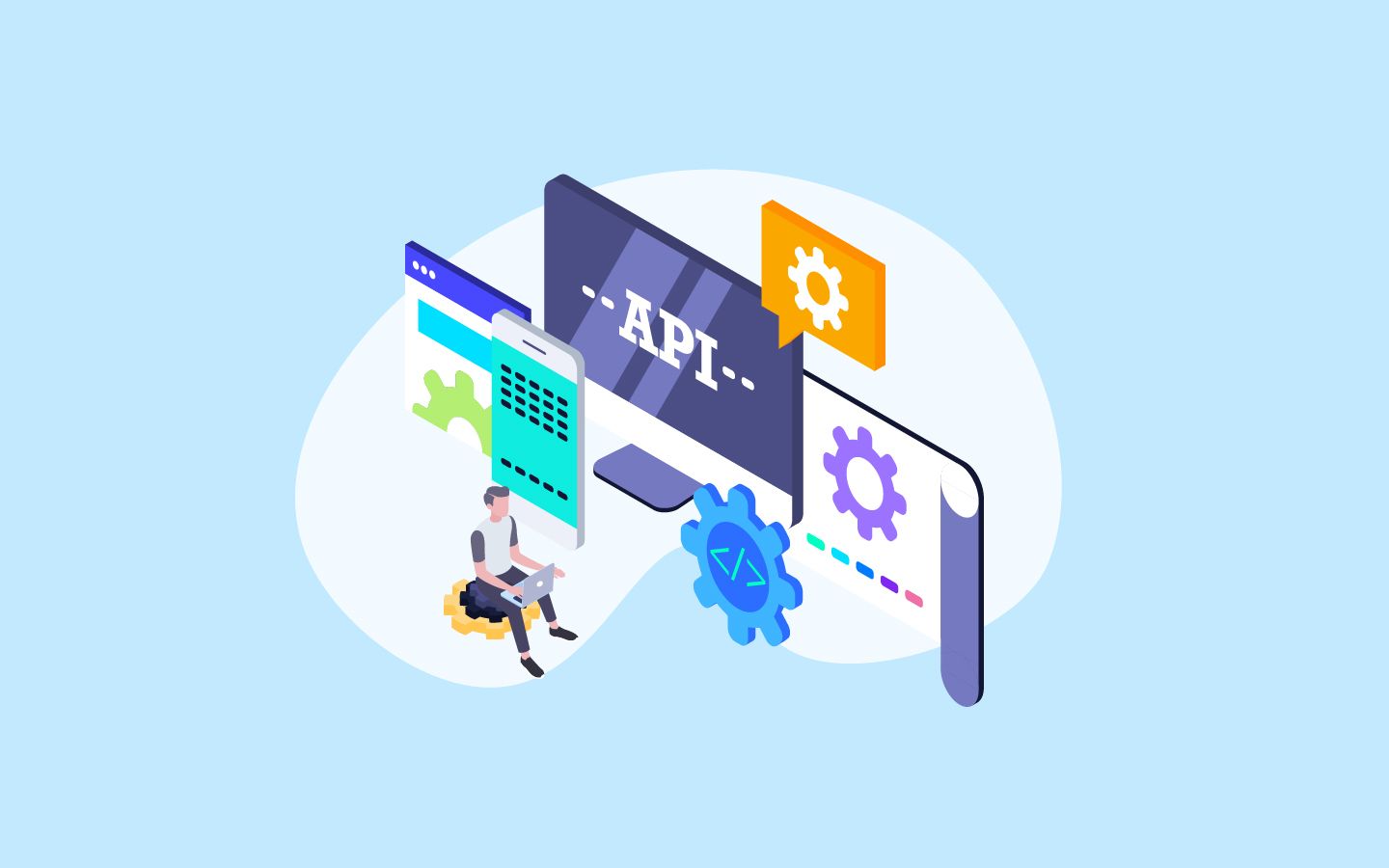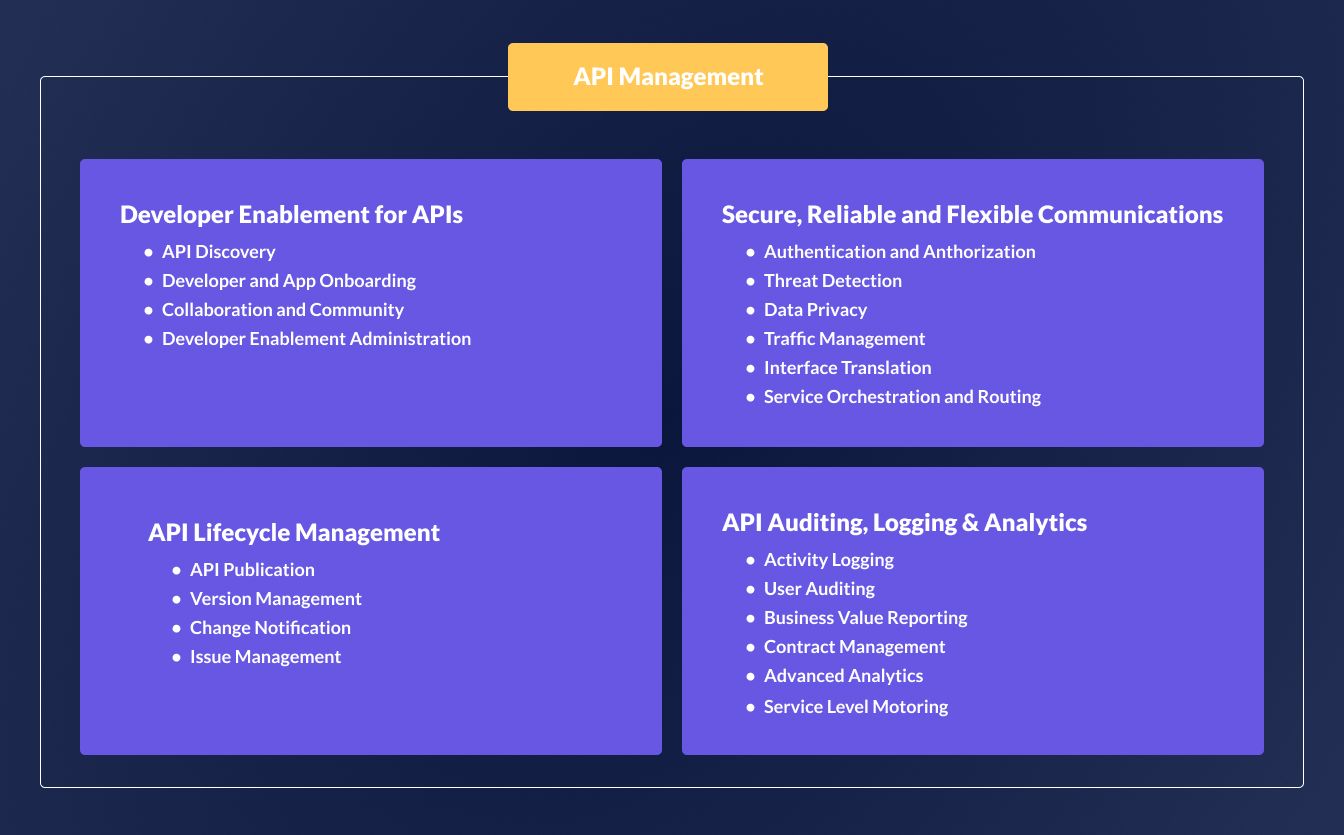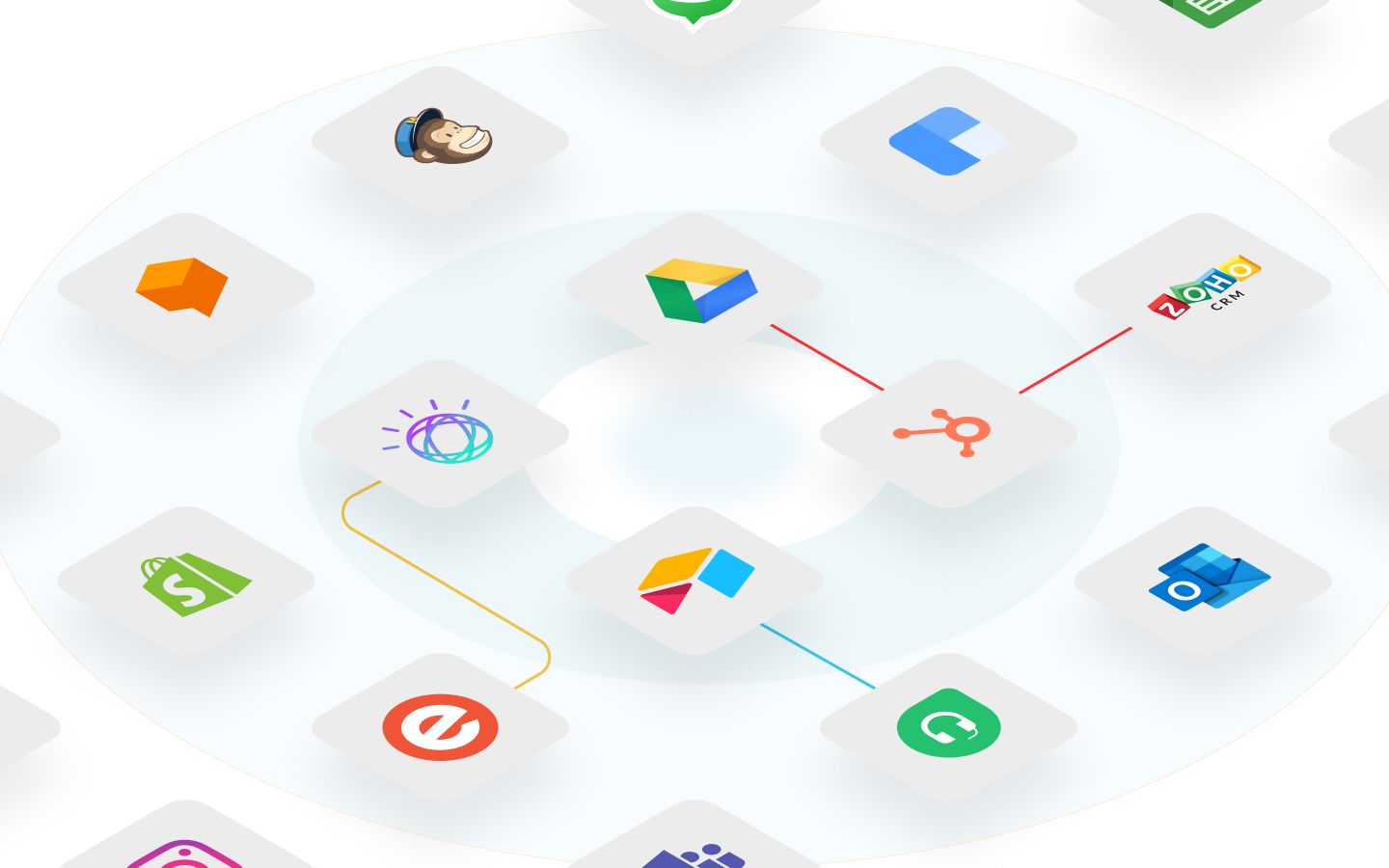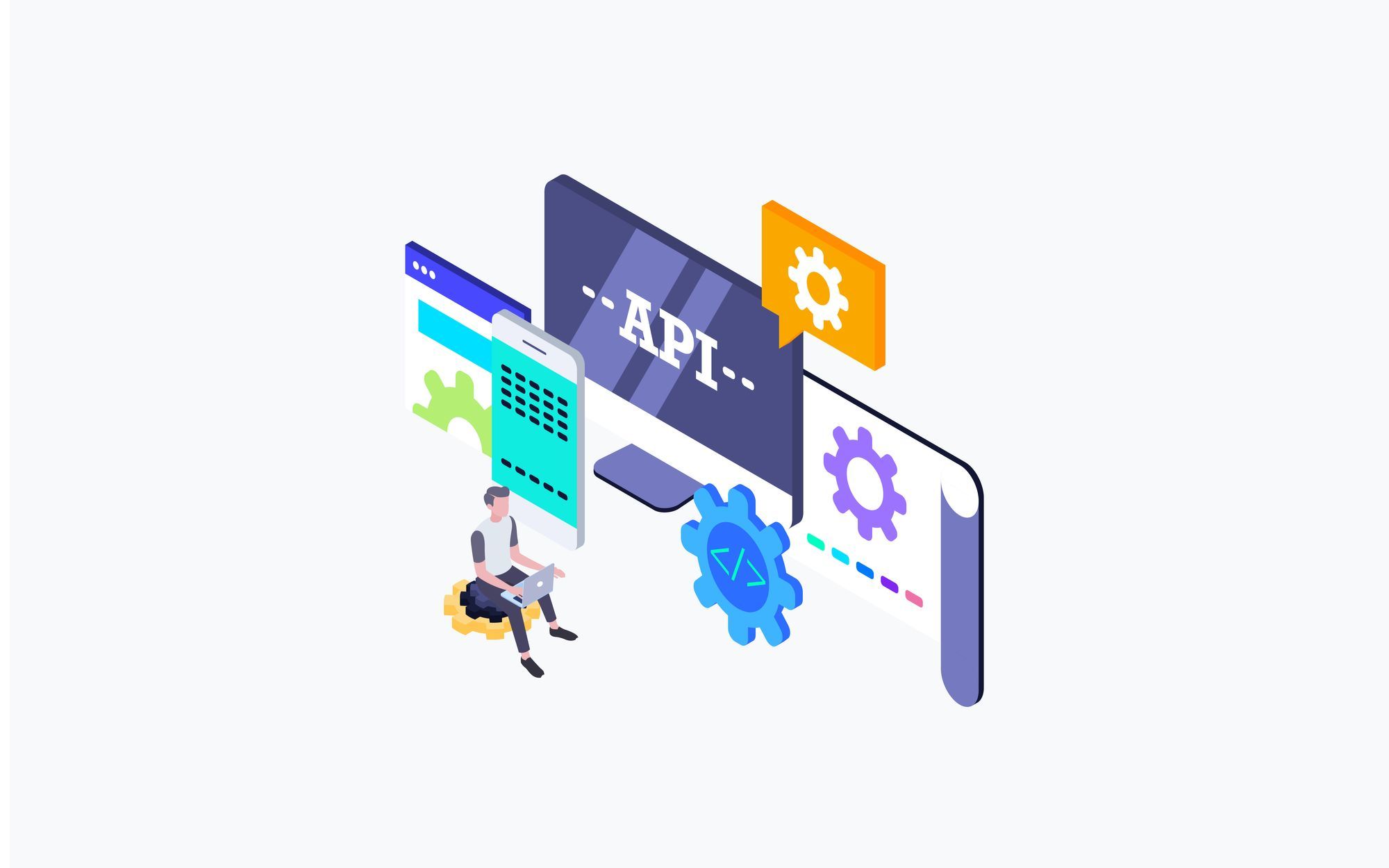In our last article on APIs, we looked at the following:
- Introduction to APIs
- Types of APIs
- What is an API key
- What is an API call
- Popular APIs
- The API value chain
- Why do companies build APIs?
- API and Quickwork

API Management
Google, Facebook, Apple, and Twitter have already exposed some of the most impactful technology solutions in the world with everyone. These companies have either transformed existing businesses or created new industries through their APIs.
Google is transforming existing businesses, Facebook is creating new industries, Apple is making things more efficient, and Twitter is connecting us all!
The key to these companies' success is the API. It links people and their computing devices to all of the platforms that power the business and the other companies.
The world is changing, look at these examples:
- Salesforce.com has a large and active partner network due to its use of an open platform. The company is doing so well only because it opened up its core services to partners, who are free to innovate and extend. Salesforce.com gets 60% of its traffic from APIs.
- Netflix has completely changed how we consume movies and tv shows by making it possible to stream them to hundreds of devices. They can do this because of APIs, that allows them to support many different devices affordably.
Why enterprise APIs so important?
Customers today want to be able to access data and services through a variety of devices and channels. Enterprise APIs are the most effective approach to accomplish this. They form the window into an enterprises data and services. They are agile, flexible, secure, and scalable.
This is a list of things to keep in mind when using an API:
-An API is a set of instructions that allow applications to communicate with each other easily.
-Developers use APIs to write applications that interact with the back-end system. They're like secret codes that allow apps to talk to each other.
-When developing an API, it needs to be managed using an API management platform.
What is API management?
API management is the process of creating, publishing, and managing API connections within an organization. The platform offers a scalable, unified environment where enterprises can share and socialize their connections. Additionally, API management offers control over who gets access to these connections. It also provides the capability to collect, analyze usage statistics and enforcing security policies.
Benefits of API management
Most businesses already use APIs to integrate into their day-to-day operations, but for some, using APIs also means managing the integration of their API across a growing number of systems and applications. This can be time-consuming and exhausting for the company's internal resources. With API management, enterprises can reuse the functionalities of API integrations. This saves time and money without compromising on security.
One of the many benefits of API management is the deployment and reuse of integration assets. With one central, unified platform for all your APIs, you can easily share documentation and coding constructs between teams, which will cut costs and time to market. In the wake of data breaches and other network security risks, API management platforms help businesses keep their services safe. These platforms track the usage of APIs and allow them to integrate new and innovative security protocols, such as OAuth, JWT, and OpenID.
API management platform
An API management platform will help your company publish APIs to meet the needs of internal, partner, and external developers. It provides core services to help you with your API programs, such as developer engagement, business insights, analytics, security, and protection.
API management offerings
An API management platform enables you to create, analyze, and manage APIs in a secure and scalable environment. The API management platform should provide the following capabilities:
- Developer enablement for APIs
- Secure, Reliable, and Flexible Communications
- API lifecycle management
- API Auditing, Logging, and Analytics.

API management capabilities can be delivered in a few different cloud formats. You can host it on the public cloud, on-premise, or make a hybrid approach. If you deploy to the public cloud, it's delivered as a hosted service. A hybrid approach can offer both benefits, some API management features are offered through a public cloud, while others are deployed on-premise.
Components of API management
An API gateway is an integral part of the API management platform. It handles all routing requests, translations, and protocols between clients and the third parties they are connected to. API gateways are an integral part of security. They deploy key security protocols like Transport Layer Security (TLS) encryption and OAuth (Open Authorization) standards to ensure API connections stay secure. The API gateway enables developers to quickly access and manage micro-services as APIs.
API developer portal: Developer portals provide capabilities for developer, app registration, onboarding, API documentation, community management, and API monetization. An API developer portal aims to provide a hub for developers to access and share API documentation. Developer portals streamline communication between teams and provide an easy platform for developers to browse, build, and test their APIs.
Reporting and Analytics: Analytics services monitor the traffic of each application and provide insight, operational data, API, application performance and engagement metrics to enterprises. API management is critical because it allows organizations to track usage metrics. API platforms use synthetic methods for monitoring response time and the availability of APIs. They can also integrate analytics programs and extract data from protocols to automate reporting.
API lifecycle management: API integrations are a critical part of digital transformation strategies. They allow companies to scale their operations by making it easy to manage the entire lifecycle of an API. The best API management platforms provide enterprises with the tools they need to get started and the perfect amount of customization throughout the rest of their API's lifespan. The API management tool provides a sustainable and efficient way for businesses to build, test, and manage their APIs. It does this while ensuring that the product remains in line with the company's standards and objectives at every step of the way.
API management use cases
API management platforms help businesses in a variety of ways. Here are a few common use cases for an API management solution:
Supporting digital transformation strategies
The management of APIs has become a key aspect of digital transformation. The ability to seamlessly connect digital assets is a vital tool that companies need to succeed. As your business continues to grow, you'll want your digital ecosystem to evolve.
Tools and services are important, but they can be too much for a business to handle if they’re not automated. Fortunately, enterprises can speed this process up by using API management platforms and connecting their APIs to one centralized platform, where they can automate testing, deployment, managing, and monitoring of API connections.
GDPR and compliance considerations
Privacy and compliance regulations are a top priority for brands in the wake of GDPR. To address these, API gateways are an excellent solution. Gateways protect user data and access points as information is transmitted through an API to safeguard people's privacy rights and ensure compliance. Security tokens and access keys are also used to protect user information. The administrator can control who has access to the API and what level of access they have.
Ensuring data security
Protecting data has become increasingly important to enterprises. API management solutions are an excellent way to keep your data safe by encrypting all of it and requiring signatures before the right users can gain access. Organizations can monitor API activity in real-time. This is useful for identifying potential vulnerabilities in operating systems, networks, drivers, and API components. Monitoring data leaks can help organizations track down the underlying problem and provide insight into improving security.
API management and Quickwork
API management is just one tool in the belt of business and IT operations. With more organizations moving to a customer-centric business model, the demand for better customer experiences is on the rise, and so is the need for an increased number of applications. APIs are an essential part of this process, but people often forget the importance of API management because it is just one part of a bigger puzzle.
Quickworks' AI-powered automation capabilities will make every process more intelligent and accelerate innovation. With prebuilt workflows, the process of creating a new product is easier and faster than ever before.
When you want to modernize your applications and transform your business, you need a partner with the right tools. If you're looking for an API management solution, there are many options. But if you're also looking for an automation and scalability solution, a platform that's ready for digital transformation strategies, you need a partner that can deliver those services.
Get started with Quickwork today!
Related reads:










